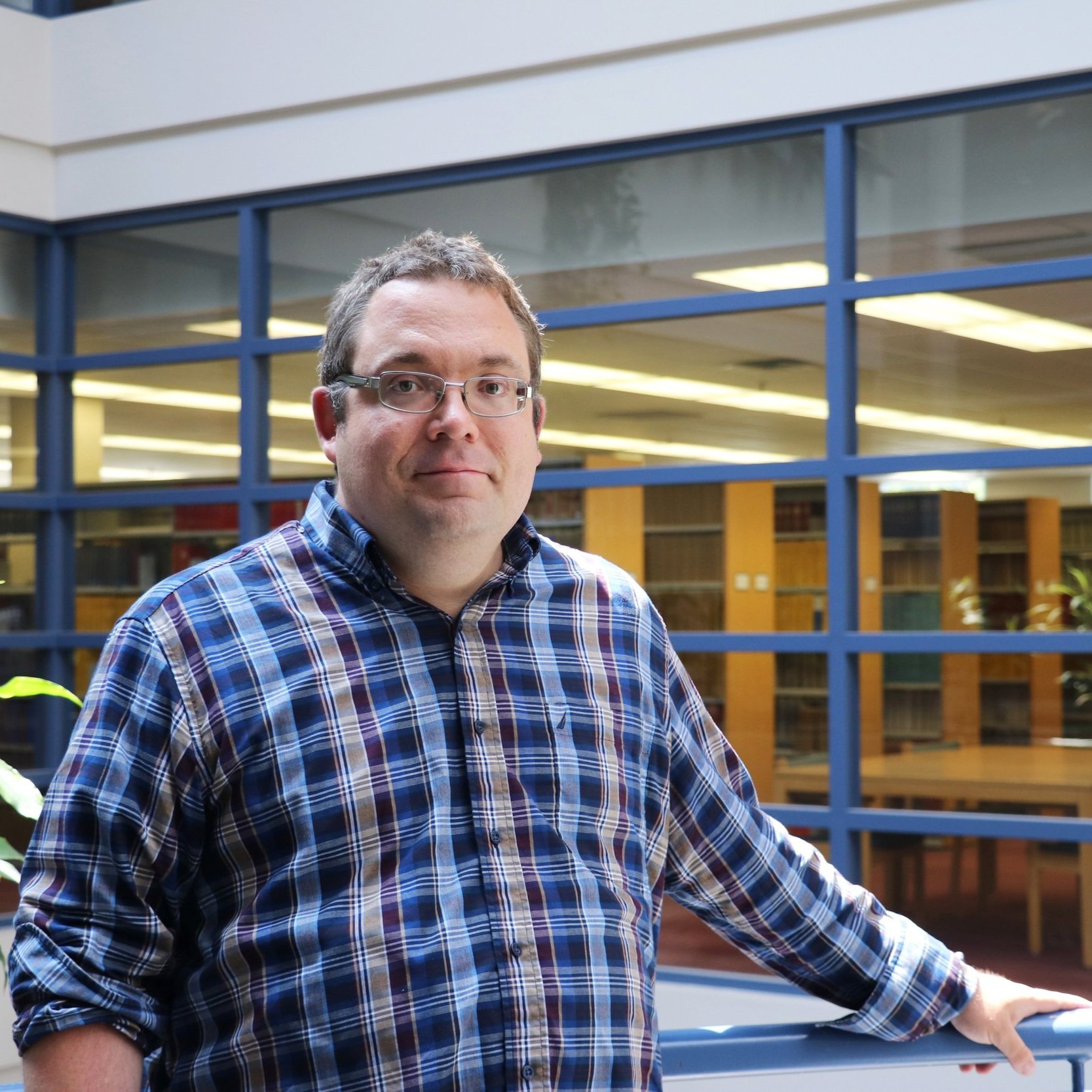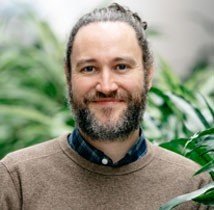Our People
Learn about the people who are researching, teaching, working in, and supporting Aboriginal and Indigenous law at the Schulich School of Law.
Naiomi Walqwan Metallic
Role at Schulich Law: Associate Professor and Chancellors Chair in Aboriginal Law and Policy
How your work connects with Aboriginal and Indigenous law:
I am Mìgmaq from the Listuguj Mi’gmaq First Nation in Gespe’gewa’gi.
As a full-time lawyer, and now as counsel to my firm, my practice focused on Aboriginal law and First Nations governance and employment. I have appeared before the Federal Court, Federal Court of Appeal, Nova Scotia Supreme Court, New Brunswick Court of Appeal and Supreme Court of Canada on behalf of First Nations individuals, communities and organizations.
I teach LAWS 2026 Constitutional Law and a number of our courses in the Certificate, including LAWS 2280 Aboriginal Peoples and the Law and LAWS 2289 Indigenous Law.
Much of my research focuses on how Canada law can be harnessed to promote the well-being and self-determination of Indigenous peoples in Canada.
Lately, my work has focused on the revitalization of Indigenous peoples’ legal orders, particularly through Indigenous languages. This coincides with my learning of the Mìgmaq language.
What excites you most about your work:
The prospect of advancing positive change towards the well-being and self-determination of Indigenous peoples, whether that be through teaching, writing or working directly with communities.
Links to your work (writing, projects, etc):
Presentations: see my YouTube channel
Sara L Seck
Role at Schulich Law: Associate Professor, Yogis & Keddy Chair in Human Rights Law, member of Marine & Environmental Law Institute
How your work connects with Aboriginal and Indigenous law:
My research and teaching are at the intersection of environmental and human rights law, both within Canadian domestic law and international law. Respect for the rights of Indigenous peoples and Indigenous governance of lands and territories is central to a human rights-based approach to decision-making around resource extraction, the creation of protected and conserved areas, and biodiversity and ecosystem health more generally, both within and outside of Canada. Beyond state obligations, a human rights-based approach also draws attention to the responsibilities of businesses as human rights duty bearers.
What excites you most about your work:
It has been exciting to see how much has changed in attitudes and understandings with regard to Indigenous rights since UNDRIP was adopted by the UN General Assembly in 2007. In 2022, the UNGA recognized the right to a clean, healthy and sustainable environment as a human right related to other rights and international law. Canada voted in favour and no states voted against. There is an opportunity now to see how recognition of this right could support Indigenous self-determination, including through a gender lens, both within Canada and internationally.
Links to work (writing, projects, etc):
Dr. Sara Ross
Role at Schulich Law: Assistant Professor
How your work connects with Aboriginal and Indigenous law:
I study different ways of understanding, conceptualizing, and knowing “property”, potent spaces of culture as well as the objects/things of and for culture in its intangible and tangible forms. I often approach this work through an expansive lens of legal pluralism, comparative law, and legal anthropology in order to consider the role of “law” in shaping, facilitating, and/or limiting cultural spaces, objects/things, and properties.
What excites you most about your work:
I am passionate about access to, preservation, and the use of potent cultural spaces, properties, heritage, and objects/things in their tangible and intangible forms and expressions. Much of my focus here narrows in on the urban context, including virtual dimensions, and engages the lens and methodologies of legal anthropology.
Links to work (writing, projects, etc):
Here is a link to my Major Research Paper from my LLM at the University of Ottawa, entitled “Res Extra Commercium and the Barriers Faced when Seeking the Repatriation and Return of Potent Cultural Objects: A Transsystemic Critical Post-Colonial Approach”, which was published in its entirety in the 4:2 issue of the American Indian Law Journal in 2016: http://digitalcommons.law.seattleu.edu/ailj/vol4/iss2/5/
In addition to this specific piece, you can find many of my 12 of my 24 published articles on my BePress profile here: https://works.bepress.com/sara-ross/
Kristan Belanger
Role at Schulich Law: Instruction & Public Service Librarian. Research Lead with the Lnuwey Tpludaqan Wikuom
How your work connects with Aboriginal and Indigenous law:
I am Mi'kmaq from Glooscap First Nation.
In my role as an Instruction & Public Service Librarian, I work to support students, faculty, and community members in navigating legal information systems, with a particular focus on ensuring that Indigenous voices and perspectives are reflected in research and instruction. I aim to create spaces where both Indigenous and non-Indigenous learners can engage meaningfully with the principles, practices, and responsibilities within Mi’kmaq and other Indigenous legal traditions.
As Research Lead with the Lnuwey Tplutaqan Wikuom, I support the Wikuom and the broader vision of Indigenous law revitalization by:
Facilitating community engagement and visioning sessions that ground research in lived experience and collective priorities;
Developing internal policies and principles that reflect Indigenous values and governance traditions;
Fostering inter-organizational communication to strengthen collaboration across institutions;
Advancing project proposals to expand research capacity and secure resources;
Conducting literature reviews and legal research to support the Wikuom’s ongoing projects;
Preparing reports and knowledge mobilization tools that share findings with both academic and community audiences;
Monitoring project timelines and deliverables to ensure initiatives stay on track;
Supporting grant writing and funding applications to sustain long-term initiatives.
What excites you most about your work:
The most exciting part of my work is the extraordinary people I get to collaborate with every day: community members, students, colleagues, and leaders who are deeply committed to the flourishing of Indigenous law. Every project is an opportunity to learn from those who bring incredible wisdom and vision to the table. I am also grateful that my role allows me to contribute, in my own way, to helping Lnuwey Tplutaqan and other Indigenous legal orders thrive.
Links to work (writing, projects, etc):
Indigenous alternative dispute resolution infographic.
Kristan Belanger, Natawitplutaqatiek (We Are Good Lawmakers): (Master’s thesis, Dalhousie University, 2025) [online] DalSpace: https://dalspace.library.dal.ca/items/be52bbf6-8753-4a83-a5a7-64118b509bce
Andrew Flavelle Martin
Role at Schulich Law: Assistant Professor
How your work connects with Aboriginal and Indigenous law:
My research focuses on legal ethics and professionalism, including professional regulation and professional discipline.
I am interested in how law societies and their tribunals implement institutional commitments to reconciliation, specifically in the application of Gladue principles in the professional discipline of Indigenous lawyers.
That research led me to look more generally into the applicability and role of Gladue principles in administrative law.
What excites you most about your work:
Facilitating practical real-world regulatory advances and broader and more informed discussion among stakeholders.
Links to work (writing, projects, etc):
Most of my publications are available on BePress at https://works.bepress.com/andrew-martin/.
Key publications include:
Andrew Flavelle Martin, “Gladue at Twenty: Gladue Principles in the Professional Discipline of Indigenous Lawyers” (2020) 4:1 Lakehead LJ 20.
Andrew Flavelle Martin, “Creative and Responsive Advocacy for Reconciliation: The Application of Gladue Principles in Administrative Law” (2020) 66:2 McGill LJ 337. works.bepress.com/andrew-martin/32/
Kelsey Jones
Role at Schulich Law: Director, Indigenous, Black and Mi’kmaq Initiative
How your work connects with Aboriginal and Indigenous law:
The Indigenous, Blacks, and Mi’kmaq (IB&M) Initiative at the Schulich School of Law was established in 1989 to increase the representation of Indigenous, Blacks, and Mi’kmaq in the legal profession to reduce discrimiantion.
The IB&M Initiative ensures that Mi’kmaw, and other Indigenous students, are represented at the Schulich School of Law. The Initiative involves:
Community outreach and recruiting.
Providing financial and other support to students.
Developing scholarships in the areas of Aboriginal law and African Canadian legal perspectives.
Promoting the hiring and retention of graduates.
What excites you most about your work:
I love supporting Indigenous law students and helping them navigate through their legal education. It is exciting to watch these students graduate and go on to build successful careers in the field of law, knowing they have the skills and knowledge to make a real difference.
Links to work (writing, projects, etc):
Constance MacIntosh
Role at Schulich Law: Full Professor
How your work connects with Aboriginal and/or Indigenous law:
I have worked at the intersection of Aboriginal law and other legal regimes with the human rights of Indigenous peoples for about two decades. My work has taken deep dives into how law is implicated in the health inequities that continue to be experienced by Indigenous peoples, from public health to access to safe water and food.
What excites you most about your work:
It means a lot to me to watch the field transform, from a time when most of the 'expert' participants were non-Indigenous to one where I now have many talented and inspiring Indigenous colleagues who are leading the way. I am learning so much from their contributions and so enjoy the partnerships. I am very hopeful that we are in a time of fundamental transformation, and honoured to be a part of that transformation.
Links to your work (writing, projects, etc):
Richard Devlin
Role at Schulich Law: Professor
How your work connects with Aboriginal and/or Indigenous law:
In addition to being one of the instructors for the last five years in the first year Aboriginal and Indigenous Law in Context course, I have been keen to include Indigenous perspectives on the other courses I teach, particularly Contracts and Judicial Decision-Making, Introduction to Legal Ethics and the Graduate Seminar on Legal Education and Research.
What excites you most about your work:
The inclusion of Indigenous perspectives is important to me for two reasons. First, it helps me to pursue Reconciliation which, as a settler, I believe is both a personal and professional obligation. Second, I am committed to the principle of life-long learning and Indigenous knowledges are a vital area for my ongoing personal growth.
Links to your work (writing, projects, etc):
Recently I have co-authored an article which includes one section that is highly critical of the Canadian Judicial Council’s refusal to include Reconciliation in its revised Ethical Principles for Judges. Mixed Bag: Critical Reflections on the Revised Ethical Principles for Judges
Dr. Sherry Mae Pictou
Role at Schulich School of Law: Assistant Professor (Joint appointment with the Faculty of Management); Tier 2 Canada Research Chair, Indigenous Governance.
How your work connects with Aboriginal and/or Indigenous law:
I am a Mi’kmaw woman from L’sɨtkuk (water cuts through high rocks) known as Bear River First Nation, Nova Scotia.
I am honored to be serving as the first female District Chief for the Confederacy of Mainland Mi’kmaq since 2021).
I also served on council and as Chief for my community and am the former community former female Co-Chair of the World Forum of Fisher Peoples.
Currently I am a member of the Intergovernmental Science-Policy Platform on Biodiversity and Ecosystem Services (IPBES)Task Force on Indigenous and Local Knowledge and Co-Principal Investigator for the Arramat project: Biodiversity and Indigenous Health and Wellbeing.
What excites you most about your work:
Working with Mi’kmaq/Indigenous people in restoring our Indigenous (including gender) land and water based practices and approaches to management which is in essence rooted in Mi’kmaw/Indigenous Law.
Links to your work (writing, projects, etc):
Roy Stewart
Role at Schulich: Part-time faculty member (LAWS 2206: Kawaskimhon Moot)
How your work connects with Aboriginal and/or Indigenous law:
I am Mi’gmaq from New Brunswick, but grew up in unceded Wolastoqiyik territory.
As a full-time lawyer my practice is focused exclusively on working with Indigenous not-for-profit organizations, communities, governments and individuals across Mi'gma'qi. I have appeared before all levels of Court in New Brunswick and Nova Scotia, and have represented Indigenous organizations at provincial and national commissions of inquiry, including the National Inquiry into Missing and Murdered Indigenous Women and Girls.
Negotiating rights implementation on behalf of Indigenous clients with the Federal and Provincial governments forms a large part of my practice.
What excites you most about your work:
The most exciting part of my work is getting to see Indigenous communities and organizations re-build their self-governance systems and reclaim their autonomy.
Links to your work (writing, projects, etc):
Hughes, Jula and Stewart, Roy, “Urban Aboriginal People and the Honour of the Crown - A Discussion Paper” (June 24, 2015). (2015) 66 University of New Brunswick Law Journal 263–299. , Available at SSRN: https://ssrn.com/abstract=2626493
Stewart, Roy and Hughes, Jula, “Gendering the Duty to Consult: How Section 35 and the Duty to Consult are Failing Aboriginal Women”, 2017, Urban Aboriginal Knowledge Network, Atlantic Regional Research Centre. Found online at: https://uakn.org/wp-content/uploads/2016/01/UAKN-Atlantic-Final-Paper_GENDERING-THE-DUTY-TO-CONSULT_Final-Paper-2017.pdf
Cheryl Simon
Cheryl Simon is an Assistant Professor who will teach Property and Special Issues in Aboriginal Law and Indigenous Governance at the law school. She is a proud Mi'kmaq woman from Epekwitk (PEI) with extensive experience in community-based policy development. She completed her BA in Native Studies from the University of Lethbridge and a law degree from the University of Victoria. She also studied Maori law and comparative Indigenous studies in New Zealand. She completed an LLM with a constitutional specialty at Osgoode law school in 2020. After briefly practicing law, Simon worked as manager of Governance Advisory Services with a national organization. She worked with First Nations communities across the country, assisting in developing governance models based on traditional systems before opening her own consulting business. Simon moved on to work for Mi'gmawe ’l Tplu'taqnn, a Treaty rights implementation organization, while teaching courses on identity law with Cape Breton University.
Jamie Baxter
Before studying law, Jamie completed his graduate studies in economics, focusing on rural and community development, and was a visiting Fulbright Scholar at the Appalachian Center, University of Kentucky. After law school, he articled with a solo practice in Toronto specializing in cases of state and institutional misconduct, civil rights and Indigenous rights, and taught part-time in the Department of Food, Agriculture and Resource Economics at the University of Guelph. Jamie then clerked at the Federal Court of Canada before returning to graduate studies in law.
Jamie’s research interests centre mainly in food systems, agriculture, land, rural-urban connections, and local governance. Most of his work looks at what are sometimes called the "working rules" that shape human interaction and cooperation--those rules and norms that operate where formal laws and actual practices meet.
Ashley Hamp-Gonsalves
Role at Schulich: Part-time faculty member (LAWS 2206: Kawaskimhon Moot)
How your work connects with Aboriginal and/or Indigenous law:
I am a full-time lawyer in private practice, with a significant practice in Aboriginal law. I am also Mi’gmaq from Ktaqmkuk (Newfoundland), but grew up in Ontario.
I provide advice to Indigenous organizations, communities, and individuals in wide variety of areas (including employment, human rights, and governance issues) and also assist when litigation arises. I have appeared before the Supreme Court of Canada, the New Brunswick Court of Appeal, as well as federal, superior and provincial courts in relation to Aboriginal law matters.
What excites you most about your work in the area(s):
Being able to assist Indigenous clients in achieving positive outcomes and visibility of their laws, cultures, and identities within settler-colonial systems and working towards decolonization of those systems.
Links to your work (writing, projects, etc):
Malian Levi
Role at Schulich: Project Coordinator, Gluskabewimk Project
Malian is a graduate of Schulich School of Law (2018). She receivied the Donald Marshall Jr Award upon completion of her Juris Doctor studies. During her time at Schulich, she was an active member of the Dalhousie Law Students Association (DILSA) and later served as co-president. Most recently, Malian graduated with a Masters of Law degree in 2024, focusing her research on revitalizing Indigenous Laws (specifically, Mi’kmaq Laws). Currently, she serves as the Project Coordinator for the Gluskabewimk Project, based on the Wikuwom. She has been in this role since completing her LLM in 2024.
How your work connects with Aboriginal and/or Indigenous law:
In my current role with the Gluskabewimk Project, I work directly with Indigenous laws, specifically focusing on the revitalization of Mi’kmaq law through Gluskap stories.
Indigenous law can be drawn from a variety of sources, including stories, oral traditions, and community dialogue and deliberations. The Gluskabewimk Project brings together community members from across Mi’kma’ki to engage in meaningful conversations about Gluskap stories and the legal principles embedded within them.
Through this work, we are contributing to the revitalization and application of Mi’kmaq laws – using them to inform governance, policymaking, and sound decision-making that is rooted in Mi’kmaq legal traditions.
What excites you most about your work in the area(s):
What excites me most about this work is its deep significance in revitalizing, recognizing, and applying Mi’kmaq laws in ways that reflect our own knowledge systems. Colonization and assimilation have profoundly disrupted Indigenous legal orders by failing to recognize them and viewing Indigenous laws as inferior, irrelevant, or incompatible with Western legal systems. This work helps bring restore and strengthen those laws, bringing them forward in ways that are meaningful to our communities today.
Mi’kmaq law may not resemble Western law in its format, but it is equally robust and meaningful. Like case law in the Canadian legal tradition, which draws legal principles from cases, or “narratives”, Mi’kmaq laws also emerge from teachings found in stories. By analyzing those stories, or narratives, we extract teachings and values that inform Mi’kmaq community practices, rules, policies, and decision-making.
What inspires me most is seeing people come to understand that Indigenous laws are not only valid, but they are vital to the survival of all Indigenous peoples, communities, and nations. Helping others recognize and appreciate Indigenous law, specifically Mi’kmaq law, as a legitimate and powerful legal framework, equal in significance to Canadian law, is incredibly fulfilling.
We would also like to recognize the continuing contributions of Tanisha Blackmore.
The Chancellor’s Chair in Aboriginal Law and Policy
The Chancellor’s Chair in Aboriginal Law and Policy was created through the generous support of A. Anne McLellan, PC, OC, AOE, seventh Chancellor of Dalhousie University. The Chancellor’s Chair is awarded to an emerging Aboriginal scholar in the Schulich School of Law who will provide leadership in teaching and research in the area of Aboriginal Law for a five-year renewable term. The Chair is expected to contribute to teaching and research, identify opportunities to collaborate with scholars from other Dalhousie University faculties to offer interdisciplinary courses and to conduct interdisciplinary research, build relationships between the university and Aboriginal communities, and generally build the profile of the Schulich School of Law and Dalhousie University in Aboriginal Law and Policy teaching and research.
In line with the leadership mandate of the Chair, Accessing Aboriginal Law is intended to profile student and faculty projects and research in the area of Aboriginal and Indigenous law, post announcements about current publications and presentations relevant to Aboriginal and Indigenous law, and share information about the courses and programs on offer at Schulich Law. By sharing this information, we hope to respond to the need for more accessible information on Aboriginal and Indigenous law by sharing projects, research and announcements that may be of use to students, journalists, members of Indigenous communities and members of the public. It is also intended to celebrate and encourage the work of our students taking place within the law school.
















